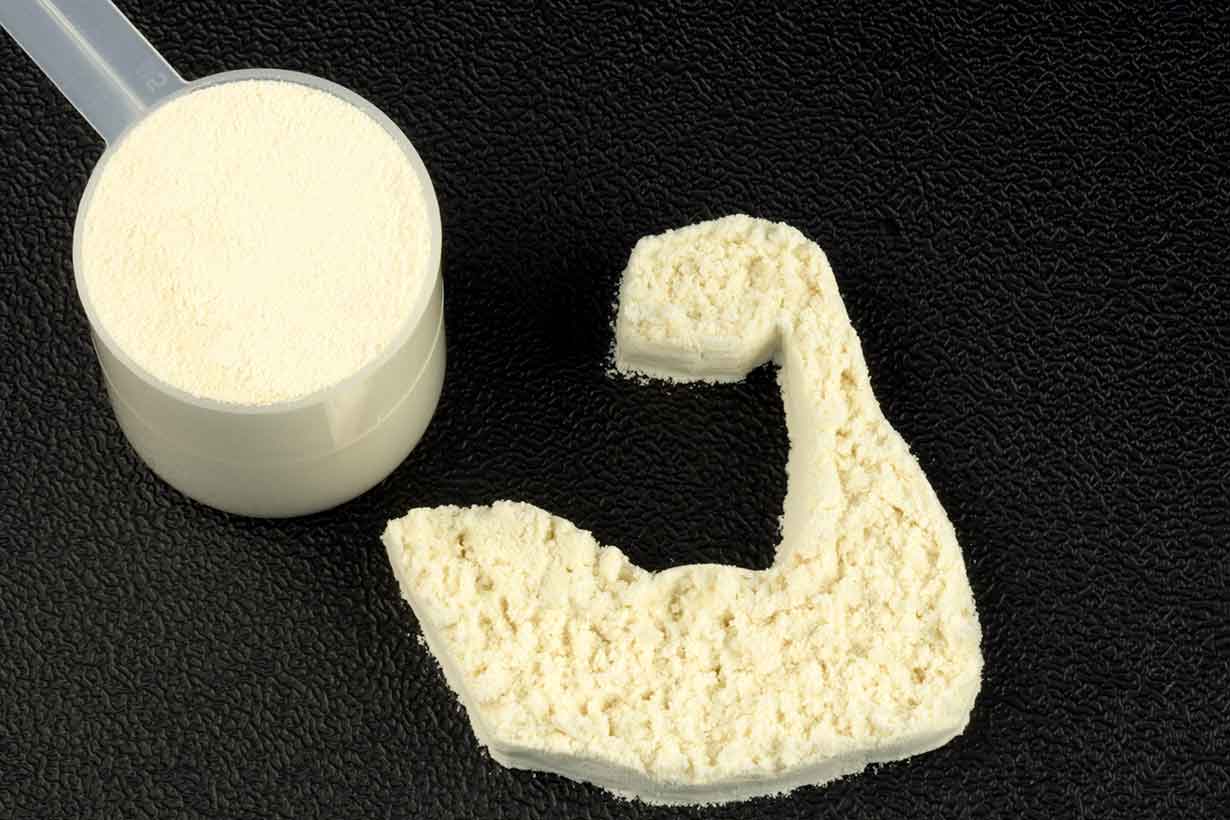Disclosure: This post may contain affiliate links. This means if you click on one of these links and purchase an item, we will receive a small commission at no extra cost to you. All opinions are our own.
It might come as a surprise, but more than 65% of the world’s population experiences a diminished ability to digest lactose after early childhood (1).
While lactose intolerance is most prevalent in East Asia, it can affect individuals worldwide beyond infancy (2).
Despite this widespread prevalence of lactose intolerance, many people continue to indulge in dairy foods for their taste or cultural significance, resulting in a high demand for a solution.
This article examines a potential remedy for lactose intolerance known as Lactaid pills.
Firstly, we’ll explore what lactose intolerance entails. Following this, we’ll proceed with a review of Lactaid pills, assessing their efficacy and potential drawbacks.
Table of contents
What is Lactose Intolerance?

Lactose is the primary sugar in milk and dairy products, sometimes referred to as “milk sugar.”
As mentioned earlier, numerous individuals experience a diminished ability to digest lactose efficiently following infancy. This shift is tied to an enzyme named lactase—more specifically, its decline.
In this context, the reduced digestibility of lactase attributed to a natural decline in lactase production, commencing around the age of approximately five years old (3).
Situated in the small intestine, lactase is an enzyme tasked with the role of digesting lactose in milk and other dairy products (4).
Symptoms of Lactose Intolerance
Some of the most common symptoms of lactose intolerance include (5, 6):
- Bloated stomach
- Stomach pain/cramps
- Diarrhea
- Joint pain
- Gas
- Acne
- Chronic fatigue/lethargy
In general, these symptoms manifest somewhere between 30 minutes to 2 hours after consuming a source of lactose (5).
The severity of these symptoms can vary, ranging from mild to strong, depending on the degree of intolerance, and the quantity of lactose consumed (7).
It should be emphasized that if anyone experiences these symptoms after consuming dairy products without understanding the cause, consulting with a physician or trusted healthcare professional is advisable.
Lactose Intolerance vs. Milk Allergy
It’s crucial to note that, despite sharing common symptoms, lactose intolerance and milk allergy are distinct conditions (8, 9).
Specifically, milk allergy symptoms can be notably more severe, potentially leading to an allergic reaction.
Once again, if anyone is encountering adverse reactions to dairy products, seeking guidance from a medical professional is essential for an accurate diagnosis.
Typical Diets For Lactose Intolerance
Individuals with lactose intolerance typically adhere to a diet low in lactose. In this regard, lactose-containing foods are either eliminated or reduced to a tolerable level.
For example, here are some foods that contain lactose:
| Food | Lactose Content (grams) |
| Butter (1 tsp) | Trace |
| Cheese (1 oz/28g) | 0-2 |
| Condensed Milk (½ cup) | 3 |
| Cottage Cheese (½ cup) | 3 |
| Heavy Cream | <0.2 |
| Ice Cream (½ cup) | Varies by brand |
| Milk (1 cup) | 12-13 |
| Sour Cream (2 tbsp) | 0.7 |
| Yogurt (6 oz/170g) | 5-10 |
Source: The University of Virginia
Moreover, any food products containing milk derivatives (such as chocolate, desserts, and margarine) may contain small amounts of lactose.
It’s worth noting that some individuals still maintain some degree of tolerance for lactose (10, 11). In such cases, complete elimination of lactose may be unnecessary.
However, for certain individuals, even the slightest amount of lactose can cause symptoms. In such cases, the complete elimination of lactose may be necessary.
While milk is the primary source of lactose, fermented dairy like cheese have a significantly lower concentration, particularly hard-aged cheese.
What is Lactase?
In brief, lactase is a digestive enzyme responsible for breaking lactose down into easily digestible simple sugars.
As previously explained, many individuals lose the ability to produce sufficient amounts of the lactase enzyme after early childhood. Consequently, the deficiency in lactase production leads to an inability to digest lactose in milk with the same efficiency (3).
However, cultures with a longstanding milk-drinking culture have developed a condition known as ‘lactase persistence.’ This term refers to people who do not lose the ability to produce the lactase enzyme (12).
Lactase persistence is most prevalent in Europe. For example, the British have a high rate of lactase persistence, ranging from 85-95% of the population (13, 14, 15, 16).
Conversely, the rate of lactase persistence in East Asia is only 5-10% of the population (13).
Given that lactase deficiency is the root cause of lactose intolerance, several companies have developed products containing lactase.
Lactaid pills are one such product, offering an external source of the lactase enzyme.
What Are Lactaid Pills?

Lactaid, a brand specializing in products like drinks and tablets, incorporates lactase to aid those with lactose intolerance in consuming dairy.
Lactaid pills, containing the lactose enzyme, facilitate the breakdown of lactose when ingested alongside lactose-containing foods.
The underlying concept is that by pairing these pills with lactose-rich foods, individuals with lactose intolerance can potentially avoid the associated symptoms.
Consequently, the manufacturers assert that their product enables people with lactose intolerance to “digest dairy products without discomfort” (17).
However, the question arises: should we rely on a pill to eat the food we want? And are there any potential side effects of Lactaid pills?
Ingredients Profile
Lactaid pills consist of the following active ingredients per caplet (18):
- Sodium 5mg
- Lactase enzyme (9000 FCC Lactase units)
They also include the following inactive ingredients:
- Microcrystalline cellulose
- Croscarmellose Sodium
- Crospovidone
- Magnesium Stearate
- Colloidal Silicon Dioxide
How Do Lactaid Pills Work?
Lactaid pills contain the lactase enzyme. They work by providing an exogenous source of lactase to break down the lactose in food.
Furthermore, the manufacturers state the following about Lactaid Pills (19):
- Lactaid pills contain the natural lactase enzyme and boast an excellent safety profile.
- Users should take a Lactaid pill with the first bite of their meal. Consuming them too soon or too late may diminish their effectiveness.
- Lactaid pills are safe for daily use, for every meal and every snack.
Do Lactaid Pills Work and Are They Effective?

Numerous studies have explored lactase supplementation, and we will now delve into some of their findings.
Additionally, we can examine numerous user reviews of Lactaid.
Studies
Here is a summary of the studies
- A 2008 study involving 134 participants discovered that the oral administration of lactase enzymes is highly effective. Among individuals with lactose intolerance, the total ‘symptom score’ was 88% lower after a standard dose. Moreover, a low dose reduced total symptom score by 76% (20).
- In a randomized controlled trial published in 2010, the active ingredient in Lactaid pills was compared to a probiotic supplement (Lactobacillus reuteri) and a placebo. When given to lactose-intolerant individuals, the lactase pills significantly improved gastrointestinal symptoms. Further, they proved more effective in improving these symptoms than Lactobacillus did (21).
- A 2014 study involving 96 individuals with lactose intolerance demonstrated a similar finding. After the oral consumption of exogenous lactase, there were notable reductions in abdominal pain, bloating and diarrhoea, but not nausea (22).
Lactaid Pills: Web MD User Reviews
As of December 2023, based on a total of 106 user reviews on Web MD, Lactaid Pills received the following rating out of 5 (23).
- Effectiveness: 1.5
- Ease of Use: 2.5
- Satisfaction: 1.5
- Overall rating: 2.1
As we can see, the ratings for satisfaction and effectiveness are not especially reassuring. Perusing the comments, many users claim to have experienced side effects such as sickness.
However, others report that the pill has been a great help and enabled them to consume what they want. In general, it presents a mixed bag of reviews.
Nevertheless, it is important to point out that WebMD is a medical website, potentially skewing the results. For instance, individuals experiencing symptoms after taking Lactaid pills may be more inclined to visit a site providing information on the medication’s effectiveness and symptoms, leading to them providing a negative review.
On the contrary, those with positive results using Lactaid may simply be content and less inclined to visit such websites to leave a positive review.
Amazon User Reviews
Lactaid pills achieve a much higher score on Amazon, currently holding a rating of 4.6/5.
While the majority of reviews are very positive, a few are still negative, claiming that the product was ineffective.
Side Effects: Are Lactaid Pills Safe?

Any supplement or medicine capable of producing an effect has the potential to induce side effects in some users.
After reviewing numerous testimonials, stomach cramps, nausea, and vomiting are some of the most frequently cited side effects.
Whether these side effects can be directly attributed to the Lactaid pill itself is unclear. It is plausible that the pill didn’t perform as well as expected, leading to adverse effects due to lactose intolerance.
Also, Web MD provides a more general side effect warning: “A severe allergic reaction to this drug is rare. However, get medical help right away if you notice any symptoms of a serious allergic reaction, including rash, itching, dizziness, trouble breathing” (24).
Common Questions Regarding Lactaid Pills
Finally, here are some answers to common questions about Lactaid pills.
According to the manufacturer, Lactaid supplements can be used with every item of food consumed each day (25).
The manufacturer states that children aged either four or over can use Lactaid supplements (26).
Lactaid pills and other lactase supplements may be found in certain health and supplement stores. Additionally, the manufacturer has a ‘where to buy’ interactive map for those in the United States. Amazon also stocks a range of Lactaid supplements, available here.
No, the supplement is available over the counter. However, it is always advisable to consult with your doctor before starting a supplement for a health condition.
No, lactase-based supplements may help to alleviate some symptoms of lactose intolerance when consumed alongside lactose. However, the underlying lactose intolerance will persist.
No, they do not. Lactose intolerance and milk/dairy allergies are two distinct conditions. A supplement designed to aid lactose digestion will not address an allergy.
Are Lactaid Pills An Effective Solution For Lactose Intolerance?
When evaluating the effectiveness of Lactaid pills for lactose intolerance, the answer may be nuanced: they can be effective, but efficacy may vary among individuals.
When it comes to diet and nutrition, it is crucial to recognize that we are all biologically unique. In short, what works for one person may not work for another.
For individuals with lactose intolerance seeking to continue consuming dairy, Lactaid pills could be worth trying and may prove effective.
However, it is worth noting that some users report side effects, such as nausea.
Ultimately, individuals with lactose intolerance are advised to discuss the matter with a physician or trusted healthcare professional before considering the use of Lactaid pills. This ensures access to helpful, individualized, and well-considered advice.








